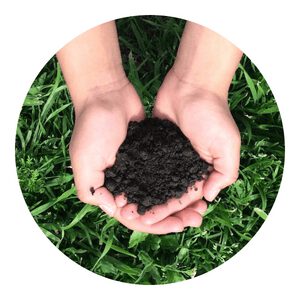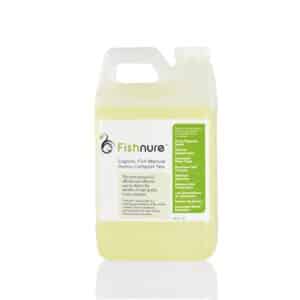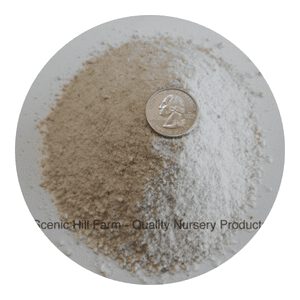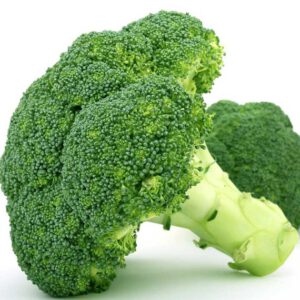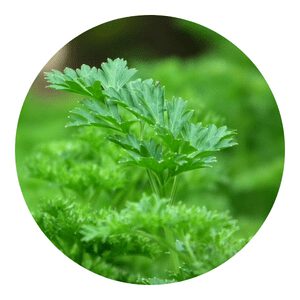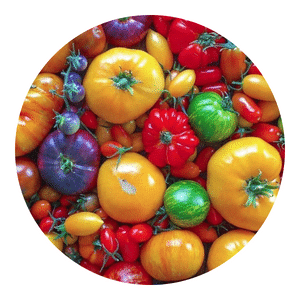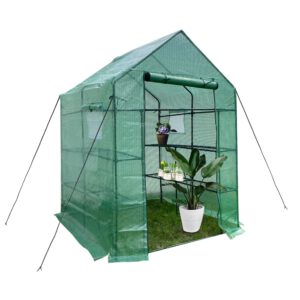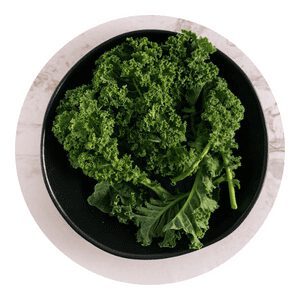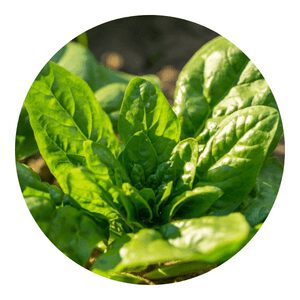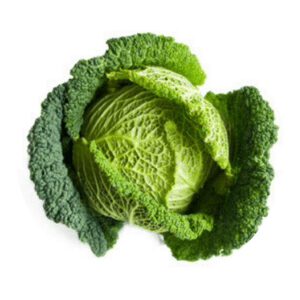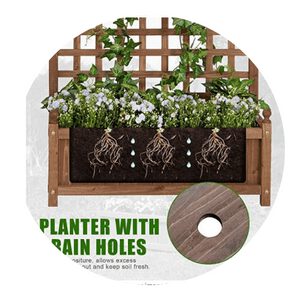How To Grow Organic Broccoli
Chappy the gardener, author of the newly released guide “How To Grow Organic Broccoli,” provides readers with a step-by-step guide to successfully growing this nutrient-rich vegetable.
This comprehensive guide covers everything from soil preparation to planting, maintenance, and harvesting.
With clear instructions and helpful tips, Chappy makes it easy for anyone to grow their own organic broccoli.
Broccoli Menu
Growing your own organic broccoli is a great way to reduce your carbon footprint and increase the health of your family.
Here few tips for growing organic broccoli:
Start with healthy soil
Organic broccoli is a great source of fiber, vitamins C, K and A, and minerals like potassium and magnesium. It also contains sulforaphane, a compound known for its anti-cancer properties.
To get the most out of your broccoli crop, start with healthy soil.
Soil health is key to growing healthy plants, whether you are growing organically or conventionally.
The more fertile your soil is, the more nutrients your plants will absorb, and the healthier they will be. You can improve the fertility of your soil by adding organic matter such as compost or manure.
Broccoli is a cool weather crop that does best in soils with a pH between 6 and 7.5. If your soil is too acidic or alkaline, you can adjust the pH by adding lime or sulfur as needed.
Amend the soil with compost
Broccoli is a healthy vegetable to eat, but growing it can be difficult if the soil is not amended with compost.
Compost helps to add nutrients to the soil that are essential for broccoli growth. It also helps to loosen the soil so that water and air can reach the roots easily.
By adding compost to your soil, you can help your broccoli plants grow big and healthy!
Sow the broccoli seeds
If your garden is bursting with zucchini and tomatoes, but you’re looking for a way to add some green to the mix, look no further than broccoli!
This cool-weather crop can be planted in late summer and will grow well into the fall. In order to get a jump on the season, start planting broccoli seeds now!
Water regularly
Water is essential for plant growth and broccoli is no exception. In order to produce healthy, organic broccoli, it’s important to water the plants regularly.
A good watering schedule will help the plants to grow big and strong, producing delicious heads of broccoli.
In general, most vegetables need an inch of water per week, either from rainfall or irrigation.
Keep an eye on your plants and adjust the watering schedule as needed.
Harvest the broccoli florets
Broccoli florets are the edible flowers of the broccoli plant. These small, colorful florets are tender and have a slightly sweet taste.
They can be eaten raw or cooked and are a healthy addition to any meal.
Broccoli florets are a good source of fiber, vitamins C and K, and minerals such as potassium and magnesium. They can be added to salads, stir-fries, or rice dishes.
Store the broccoli florets
What is the best organic fertilizer for broccoli?
Organic broccoli is a healthy and delicious vegetable that can be grown in home gardens.
There are many different types of organic fertilizers available, so it can be difficult to know which one is the best for broccoli. In general, compost is a good choice for organic broccoli fertilization.
Compost contains a variety of nutrients that help plants grow strong and healthy. It also helps to improve the soil structure, which is important for broccoli because this vegetable grows best in well-drained soil.
Is coffee grounds good for broccoli?
Yes, coffee grounds are good for broccoli. In fact, they are great for other vegetables, fruits, and plants in your garden, too.
Coffee grounds add nitrogen, potassium, and magnesium to the soil. These nutrients are essential for plant growth.
Additionally, coffee grounds contain small amounts of phosphorus and calcium.
These nutrients help plants resist disease and pests.
Compost
Compost fertilizer is an excellent way to provide nutrients for broccoli plants. It is made from decomposed organic matter and is rich in nitrogen, phosphorus, and potassium.
These are the three essential nutrients that broccoli needs to grow well.
To use compost fertilizer, simply mix it into the soil around the base of the plant. For best results, do this every time you water the broccoli.
The compost will slowly release nutrients into the soil that the plant can take up through its roots.
Horse manure
Horse manure is an excellent fertilizer for broccoli. It is high in nitrogen and other essential nutrients that plants need to grow.
To use horse manure fertilizer, simply add it to the soil around your broccoli plants. You can also add it to compost or mix it with water to make a liquid fertilizer.
Apply the fertilizer every few weeks during the growing season.
Cow manure
Organic broccoli is a healthy and nutritious addition to any diet, and using cow manure fertilizer is an easy way to keep your plants healthy and free of harmful chemicals.
Cow manure is rich in nitrogen, phosphorus, and potassium, which are all essential nutrients for plants. It also contains beneficial microbes that help break down the organic matter in the soil, making it more fertile.
To use cow manure fertilizer, simply spread it around the base of your broccoli plants. You can also add it to compost or mix it into the soil before planting.
Be sure to wear gloves when handling manure, as it can be quite smelly! Apply the fertilizer every few weeks throughout the growing season.
Chicken manure
If you’re looking to add some extra nutrients to your broccoli, chicken manure is a great option.
This type of fertilizer is high in nitrogen and phosphorus, two essential nutrients for broccoli growth.
Here’s how to use it:
1. Chicken manure should be composted before using it as fertilizer. This helps to break down the nutrients so they’re more readily available to plants.
2. Spread chicken manure around the base of your broccoli plants. Be careful not to get any on the leaves, as this can burn them.
3. Water the area well after applying the fertilizer.
Chicken manure is an excellent way to give your broccoli a boost.
Just be sure to compost it first and apply it carefully around the base of the plant.
Goat manure
Organic broccoli plants need nitrogen, phosphorus and potassium to grow properly.
They also benefit from trace minerals such as calcium, magnesium, sulfur and iron.
Goat manure is an excellent source of organic matter and nutrients for broccoli and other vegetables.
To use goat manure fertilizer, mix it with water at a ratio of 1 part manure to 10 parts water.
Apply the mixture to the soil around the base of the broccoli plants.
Do not put the fertilizer directly on the plants as this can damage them. Reapply every two weeks during the growing season.
Donkey manure
Organic broccoli is a nutritious and delicious addition to any meal, but it can be expensive to buy at the store.
A great way to get your own organic broccoli is to grow it yourself, and using donkey manure fertilizer is a great way to make sure your plants are healthy and productive.
Donkey manure is high in nitrogen, phosphorus, and potassium, which are all essential nutrients for healthy plant growth.
It also contains beneficial microorganisms that help improve soil health. To use donkey manure fertilizer for broccoli, simply mix it into the soil around your plants before watering. You can also add some to the compost pile if you have one.
Donkey manure fertilizer is an excellent way to make sure your organic broccoli plants are healthy and productive. It’s easy to use and provides all the nutrients they need for vigorous growth.
Rabbit manure
Rabbit manure is an excellent fertilizer for broccoli. It is high in nitrogen and other nutrients that plants need to grow.
Rabbit manure also contains trace minerals that are essential for plant health.
To use rabbit manure as a fertilizer, simply spread it around the base of the plant. You can also mix it into the soil before planting.
For best results, apply rabbit manure every few weeks during the growing season.
Sheep manure
Broccoli is a cool-weather crop that thrives in well-drained, loamy soil with a pH between 6.0 and 7.0.
Add plenty of organic matter to your garden plot before planting, including aged manure or compost.
Incorporate 2 to 4 inches of organic matter into the top 8 inches of soil prior to planting.
You can also side dress broccoli plants with compost or manure when they are about 6 inches tall, working the organic matter into the soil about 6 inches from the plant stem.
Sheep manure is an excellent fertilizer for broccoli and other garden crops. It contains high levels of nitrogen, phosphorus, and potassium, which are essential nutrients for plant growth.
Sheep manure also adds organic matter to the soil, improving its structure and aeration.
Fish manure
When it comes to organic broccoli, one of the best ways to ensure a rich harvest is by using fish manure fertilizer.
This type of fertilizer is high in nitrogen and other essential nutrients, making it ideal for promoting healthy growth in broccoli plants.
Here are some tips on how to use fish manure fertilizer for broccoli:
1. Use fresh fish manure if possible. If you can’t find fresh fish manure, look for aged or composted manure that’s been mixed with water.
2. Apply the fertilizer around the base of the broccoli plants, being careful not to get any on the leaves.
3. Water the plants thoroughly after applying the fertilizer.
4. Repeat every 4-6 weeks throughout the growing season.
Green manure
Green manure is an excellent way to fertilize broccoli Organically. It adds essential nutrients to the soil and helps improve drainage and aeration. It also helps reduce compaction and erosion.
Best of all, it is free!
To use green manure, simply till it into the top 6-8 inches of soil before planting. For best results, do this a few weeks before planting broccoli.
You can also add green manure to an existing bed by top dressing it.
Simply apply a 1-2 inch layer of green manure to the surface of the soil and lightly work it in with a rake or hoe.
Blood meal
When it comes to organic broccoli, one of the best ways to ensure a bountiful crop is to use blood meal fertilizer.
Blood meal is packed with nitrogen, which is essential for leafy green vegetables like broccoli. It also helps promote strong root growth.
Here are some tips for using blood meal fertilizer for broccoli:
-Apply blood meal to the soil before planting. You can also mix it into the soil around existing plants.
-The amount of blood meal you use will depend on the size of your garden and the type of soil you have. A general rule of thumb is to use 1 cup per 100 square feet of garden space.
-Be careful not to overdo it with blood meal. Too much nitrogen can actually stunt plant growth. Apply it sparingly and only as needed.
Bone meal
Organic broccoli is a healthy and delicious way to add nutrients to your diet.
One way to ensure that your organic broccoli is getting the nutrients it needs is to use bone meal fertilizer.
Bone meal is an excellent source of phosphorus and nitrogen, two essential nutrients for broccoli. It also provides trace minerals that are important for plant health.
To use bone meal fertilizer, simply mix it with water according to the instructions on the package. Then, apply it to your broccoli plants using a watering can or garden hose.
Be sure to water the plants thoroughly after applying the fertilizer. You can reapply bone meal every four weeks or as needed based on the results of a soil test.
Tips to growing broccoli
Broccoli is a cool weather crop that can be planted in early spring or late summer/early fall.
Here are a few tips to help you grow broccoli:
1. Start by planting broccoli seeds in a moist, well-drained soil. The soil should be rich in organic matter.
2. Broccoli plants need plenty of sunlight, so make sure to plant them in an area that gets at least 6 hours of sunlight per day.
3. To keep your broccoli plants healthy, water them regularly and feed them with compost or manure every 2-3 weeks.
4. Harvest broccoli when the heads are firm and before the flowers start to open up.
What month do you plant broccoli?
Broccoli can be planted in the spring or fall. In most parts of the country, it is planted in the fall.
The best time to plant broccoli is when the average daytime temperature is below 70 degrees Fahrenheit.
How much broccoli do you get from one plant?
Broccoli is a vegetable that is part of the cabbage family. It is a cool weather crop and does well in the spring and fall.
Broccoli can be grown in home gardens or in larger scale production. The size of the head will depend on the variety, but it typically ranges from 2-6 inches in diameter.
Broccoli is a good source of Vitamins C and K, as well as potassium, magnesium, and fiber.
Companion plants for broccoli - Herbs
Companion plants are plants that grow well together and have beneficial effects on one another.
When planting broccoli, adding herbs to the garden can improve growth and flavor.
Some herbs that pair well with broccoli include: chives, dill, parsley, and thyme.
These herbs not only provide flavor but also help to deter pests and diseases.
Herbs should be planted either around the broccoli plant or in between the broccoli plants.
Basil
Basil is a great companion plant for broccoli. It helps to repel pests like aphids and whiteflies, which can be a problem for broccoli plants.
Basil also improves the flavor of broccoli, making it a more delicious crop to harvest.
Broccoli and basil are both cool weather crops, so they can be grown together in the same garden bed.
Parsley
Companion plants are plants that work well together and help each other grow.
Broccoli is a great plant to grow, but it can be improved by adding companion plants. Parsley is a great companion plant for broccoli.
It helps improve the flavor of the broccoli and also attracts beneficial insects that help keep pests away.
Other good companions for broccoli include cucumbers, tomatoes, and onions.
Thyme
Companion plants are plants that grow well together and provide benefits to each other.
Some companion plants can repel pests while others can improve the growth and health of other plants.
Broccoli is a great vegetable to grow, but it can be improved by using companion plants.
Thyme is a great herb to use as a companion plant for broccoli. It helps repel pests and improves the flavor of the broccoli.
Rosemary
Companion plants are plants that grow well together and help each other out. Some companion plants are meant to be grown together, while others are not.
Broccoli is a great vegetable to grow in your garden, but it can be improved by using companion plants. One great companion plant for broccoli is rosemary.
Rosemary is an herb that has many benefits for your garden. It improves the flavor of broccoli, deters pests, and helps to improve the health of your soil.
Rosemary is a perennial plant, so it will come back year after year and help to improve the growth of your broccoli.
Mint
One way to improve broccoli yields is to companion plant it with mint. Mint (Mentha) is a member of the Lamiaceae family, which also includes basil, thyme, and lavender.
Mint plants are easy to grow in containers or in the garden and can be used fresh or dried. They are known for their refreshing scent and flavor.
Companion plants for broccoli - vegetables
Companion plants are plants that work well together and help each other grow. Broccoli is a cool weather vegetable that grows well with companion plants.
Some of the best companion plants for broccoli are basil, dill, and mint. These herbs help to repel pests and diseases, and they also add flavor to broccoli dishes.
Other good companion plants for broccoli include tomatoes, onions, and garlic. These vegetables help to improve the growth and flavor of broccoli.
Tomatoes
Companion plants are plants that grow well together and help each other grow.
Using companion plants can help you have a successful garden, even if you are a beginner.
There are many different types of companion plants, but some of the most popular ones are broccoli and tomatoes.
Broccoli is a great companion plant for tomatoes because it helps repel pests. Broccoli also attracts beneficial insects, which helps to keep pests under control.
Tomatoes are a great companion plant for broccoli because they help to improve soil quality.
The two plants also complement each other nutritionally, providing a variety of vitamins and minerals.
Onions
Companion plants are plants that grow near other plants and interact with them in order to benefit one or both of the plants.
Companion planting has been used for centuries in order to improve crop yields and ward off pests and diseases.
Some companion plants are known to repel pests while others improve the nutrient uptake of the crops they grow near.
Broccoli is a member of the cabbage family and is grown for its green, flowering head.
Onions are also a member of the cabbage family and are grown for their edible bulbs. When planted together, broccoli and onions make a great companion pairing.
Garlic
Companion plants are plants that work well together and help each other grow. Broccoli and garlic are two vegetables that can be grown together and are known for their health benefits.
Broccoli is a good source of vitamins C, K, and A, as well as fiber. Garlic is a good source of vitamins B6 and C, as well as minerals like manganese and selenium. Both broccoli and garlic are also anti-inflammatory and help boost the immune system.
By planting broccoli and garlic together, you can take advantage of their health benefits while also enjoying their flavors in your garden.
Peppers
Broccoli and peppers are both members of the cabbage family, so they are good companions for each other.
Broccoli releases a gas that helps peppers grow better.
Broccoli also attracts aphids, which are pests that can damage peppers.
Peppers release a gas that helps broccoli grow better, and they also attract beneficial insects like ladybugs.
Celery
Companion plants are plants that help boost the growth and health of other plants. They can be planted near vegetables to repel pests, attract beneficial insects, or provide nutrients and shade.
Some common companion plants for broccoli include celery, chives, garlic, nasturtiums, and strawberries.
Does broccoli grow well in hydroponics?
In recent years, the popularity of hydroponics has skyrocketed. This method of growing plants without soil has a variety of benefits, including reduced water usage and the ability to grow plants in areas where traditional agriculture is not possible.
One question that many people have is whether or not specific plants can be grown using this method. In this article, we will explore the question of whether or not broccoli grows well in hydroponics.
The answer to this question is yes – broccoli can be successfully grown in a hydroponic system.
One reason for this is that broccoli is a fairly resilient plant – it can tolerate somewhat harsh conditions and still produce a crop. Additionally, broccoli does not require a lot of nutrients, making it an ideal plant for hydroponic cultivation.
Broccoli is also popular among growers because it produces a high yield per square foot.
How long does it take to grow broccoli in a greenhouse?
Greenhouses provide an ideal environment for growing broccoli.
The temperature and humidity can be controlled, which is important for this crop.
Broccoli takes about 55 days to grow from seed to harvest in a greenhouse.
The plants will grow best if the temperature is between 65 and 75 degrees Fahrenheit and the humidity is around 60 percent.
broccoli varieties
Since the early 1990s, broccoli has been bred to have three times the usual amount of sulforaphane, a cancer-fighting compound.
But that’s not all: Broccoli is also a good source of vitamins A and C, fiber, and potassium.
Different varieties of broccoli have different colors, shapes, and sizes.
Grow Your Own Organic Broccoli!
With these organic broccoli seeds, you can grow your own delicious and healthy broccoli in your own home!
In conclusion, following the tips provided in this article will help you to successfully grow organic broccoli.
If you have any questions, please feel free to ask them in the comments section below.
Thanks for reading!
Click To Grow
Helps Us Grow – Share If You Like









